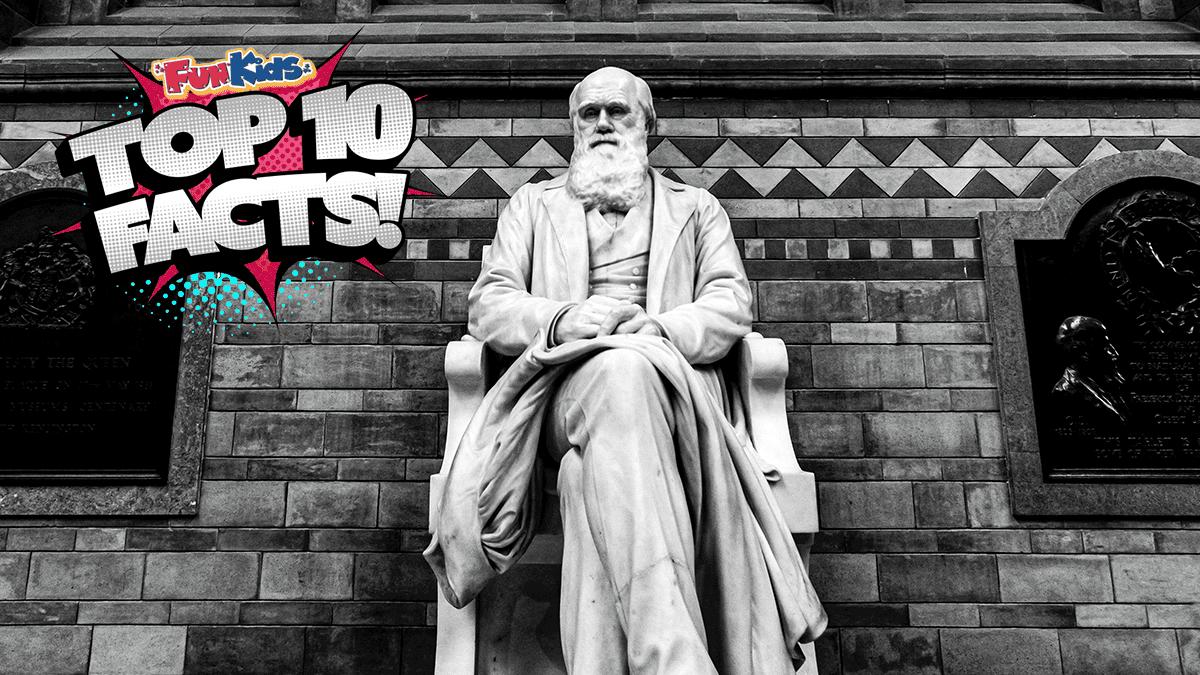Charles Darwin was one of the most influential scientists that ever lived. He is famous for his work on the theory of evolution, which changed the way we look at the natural world. His ideas continue to shape and inform our understanding of life on earth today. We’re exploring ten facts about Charles Darwin that you may not know. From his childhood love of collecting beetles to his famous voyage on the Beagle, each of these facts will give you a deeper understanding of this pioneering scientist. So, let’s dive into the life and work of Charles Darwin!
1. Charles Darwin was born in Shrewsbury, England on 12th February, 1809.
Charles Darwin was born in Shrewsbury, England on 12th February, 1809.
This means that he was born over 200 years ago in a small town in England!
He went on to become a famous scientist and his work is still studied today.
2. He was a naturalist, biologist and geologist.
Darwin was a naturalist, biologist and geologist, which means he studied the natural world.
Naturalists study plants, animals and other living things.
Biologists study living things and the way they interact with each other and their environment.
Geologists study the Earth, its history and its structure.
He was interested in learning about all of these things!
3. Charles Darwin is best known for his theory of evolution.
Charles Darwin was a scientist who lived a long time ago.
He studied the natural world and came up with a theory that explained how living things have changed over time.
His theory of evolution was a revolutionary idea that explained how living things have changed and adapted over millions of years.
His theory is still an important part of science today.
4. Charles Darwin dropped out of medical school.
Unfortunately, he didn’t like medical school very much.
He decided to drop out so he could focus on his own studies.
One of the reasons was that he really didn’t like blood!
5. Charles Darwin was an English scientist.
One of the things that we should be proud of is that Charles Darwin was an English scientist!
He also made many important contributions to the world of science, including his observations of plants and animals in different parts of the world… and of course, his work on the theory of evolution!
6. It took him over 20 years to publish his famous book.
Charles Darwin spent 20 years to publish On the Origin of Species because he wanted to make sure he had enough evidence to support his theory of evolution.
He also wanted to make sure that his theory was accepted by the scientific community and he spent years to gather evidence, research, and conduct experiments to strengthen his argument.
Darwin was a very cautious and meticulous thinker, which meant that he spent a lot of time and effort to ensure that his work was of the highest quality.
7. Lots of things have been named after Charles Darwin!
There are lots of things names after Charles Darwin!
The Charles Darwin Research Station on the Galapagos Islands is named after him.
Several species of animals and plants have been named after Darwin in his honour, such as Darwin’s frog and Darwin’s finches.
You can see the frog here!
8. Charles Darwin collected beetles.
Charles Darwin was an avid beetle collector and kept a large collection!
He would often use his beetle collection when writing about evolution, as he had studied the different species and studied their evolution.
His collection included over 1,500 different species of beetles from all over the world.
He also kept notes on each species!
9. He had the nickname ‘Gas’ at chemistry school!
Charles Darwin was known as “Gas” at chemistry school school because he loved collecting and experimenting with gases.
What is your nickname? We bet it’s better than Gas!
10. Darwin went on a five year trip on the HMS Beagle.
Charles Darwin’s five year voyage on the HMS Beagle is one of the most famous scientific expeditions in history.
In 1831, Darwin set sail on the HMS Beagle as the ship’s naturalist. He spent five years travelling to lots of destinations in South America, the Pacific Islands and Australia.
During the voyage, he collected specimens and made observations that would later form the basis of his theory of evolution. Darwin’s observations of the different species he encountered on the voyage led him to develop his theory of natural selection.
Darwin’s voyage on the HMS Beagle was an important moment in scientific history, as it provided the necessary evidence to support the theory of evolution.
Send us your favourite facts!
Is there something we've missed? Got a fact you're dying to tell us? Submit it below and we could use it on a future Top 10 Facts page!
Remember to always ask an adult before filling out forms online.



